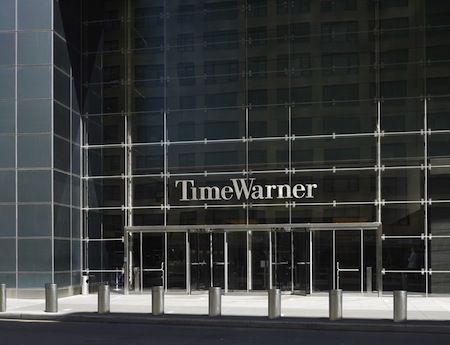Why Time Warner Said No to Hulu

The smarter way to stay on top of broadcasting and cable industry. Sign up below
You are now subscribed
Your newsletter sign-up was successful
Reports that Hulu approached Time Warner about becoming a partner in its streaming service mostly note that no deal is imminent and that one might never take place.
While Time Warner and Hulu aren’t commenting, sources confirm that no announcement is being contemplated and talks are not active.
There might be good reasons for that.
For one thing, Hulu is losing money as it ramps up spending on content to compete with Netflix. While Time Warner would certainly be a bountiful source of content as the leading provider of broadcast network shows, it might have better things to do with its money, having just told Wall Street that it has drastically reduced its earnings forecasts.
Time Warner CEO Jeff Bewkes has a checkered past with Netflix since derogating it as “the Albanian army” taking on the television world in 2010. Since then, Bewkes has enlisted. In 2011, the CW network, owned by Time Warner and CBS signed a $1 billion deal with Netflix that kept the network afloat (that deal is about to expire). Netflix has also made deals with Warner Bros. to stream shows like The Following and Gotham. Being able to sell shows to either Netflix or Hulu (or Amazon for that matter) would seem to be a good option for Time Warner.
Earlier this year, and to much fanfare, Time Warner launched its own direct-to-consumer streaming business in HBO Now, which could grow into a rival of Netflix.
And last week, during Time Warner’s earnings call with analysts, Bewkes, who was a pioneer in getting cable networks into the TV Everywhere business, made a call to protect the traditional pay-TV infrastructure against the streaming barbarians at the gate.
The smarter way to stay on top of broadcasting and cable industry. Sign up below
“We think it's important to provide even more on-demand content as part of our network offerings,” Bewkes said. “As a result, we're evaluating whether to retain our rights for a longer period of time and forego or delay certain content licensing. This would effectively push the SVOD window for content on our networks to a multiyear period more consistent with traditional syndication.”
After that speech, analyst Rich Greenfield of BTIG Research noted that the notion of investing in Hulu seemed at odds with Bewkes’ comments.
"Bewkes on Q3 call focused on TV Everywhere and protecting ad model whereas Hulu blows up both,” he tweeted. He added that creating a four-way ownership structure would be a counter-intuitive step for Hulu’s current owners.
Even though the current owners of Hulu—Comcast, The Walt Disney Co. and 21st Century Fox—all own broadcast networks as well as cable channels, Greenfield argues that its business model is more destructive to traditional TV than Netflix.
Greenfield notes that now that Hulu has an ad free model it is easier for viewers to consume video commercial free. And unlike with Netflix, viewers don’t have to wait a year to see current shows without commercials. Greenfied adds that Hulu is better than TV Everywhere, with a better user experience and more episodes of shows available. And on top of that, one doesn’t need a pay-TV subscription to be a Hulu member.
“In many ways it actually feels more disruptive to the bundle and advertising than Netflix," Greenfield says. “Furthermore, for broadcast and cable network owners who are not Hulu co-owners, we see no reason for Hulu to be a preferred buyer of syndicated programming beyond a willingness to pay more than Netflix or Amazon.”
That would go for Time Warner.
Jon has been business editor of Broadcasting+Cable since 2010. He focuses on revenue-generating activities, including advertising and distribution, as well as executive intrigue and merger and acquisition activity. Just about any story is fair game, if a dollar sign can make its way into the article. Before B+C, Jon covered the industry for TVWeek, Cable World, Electronic Media, Advertising Age and The New York Post. A native New Yorker, Jon is hiding in plain sight in the suburbs of Chicago.

